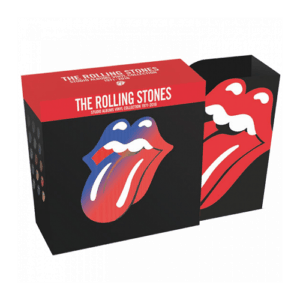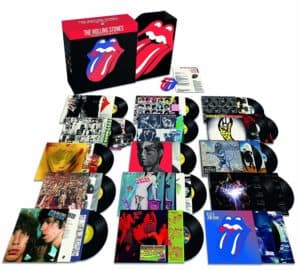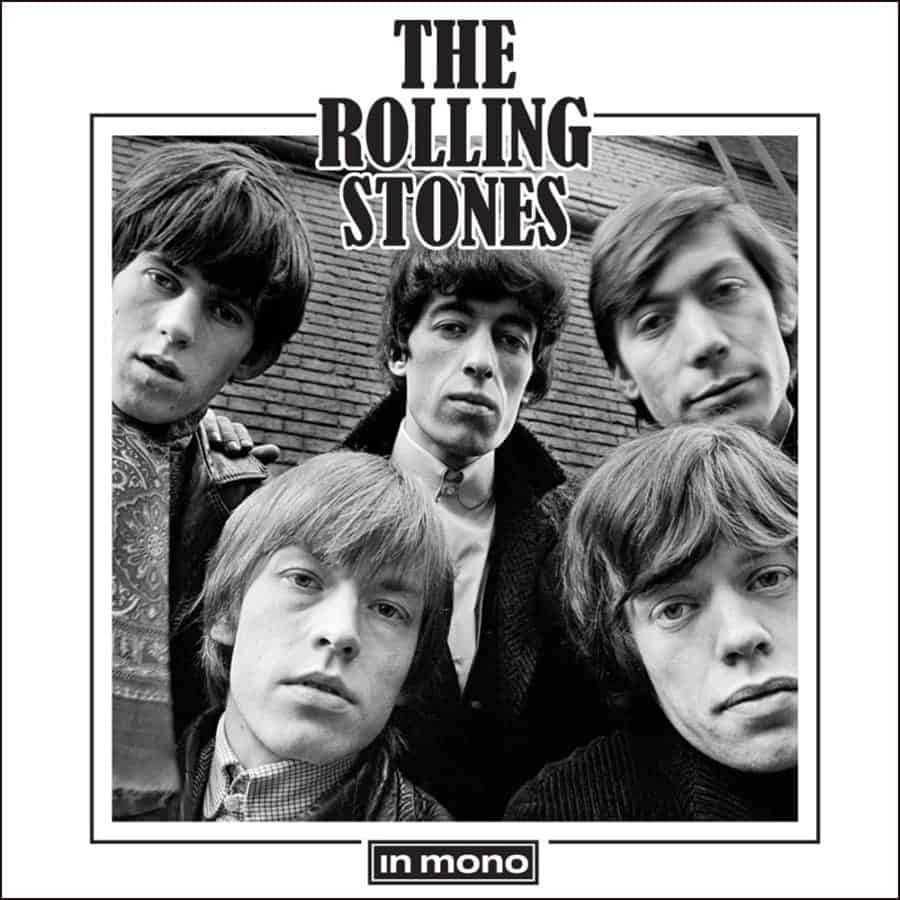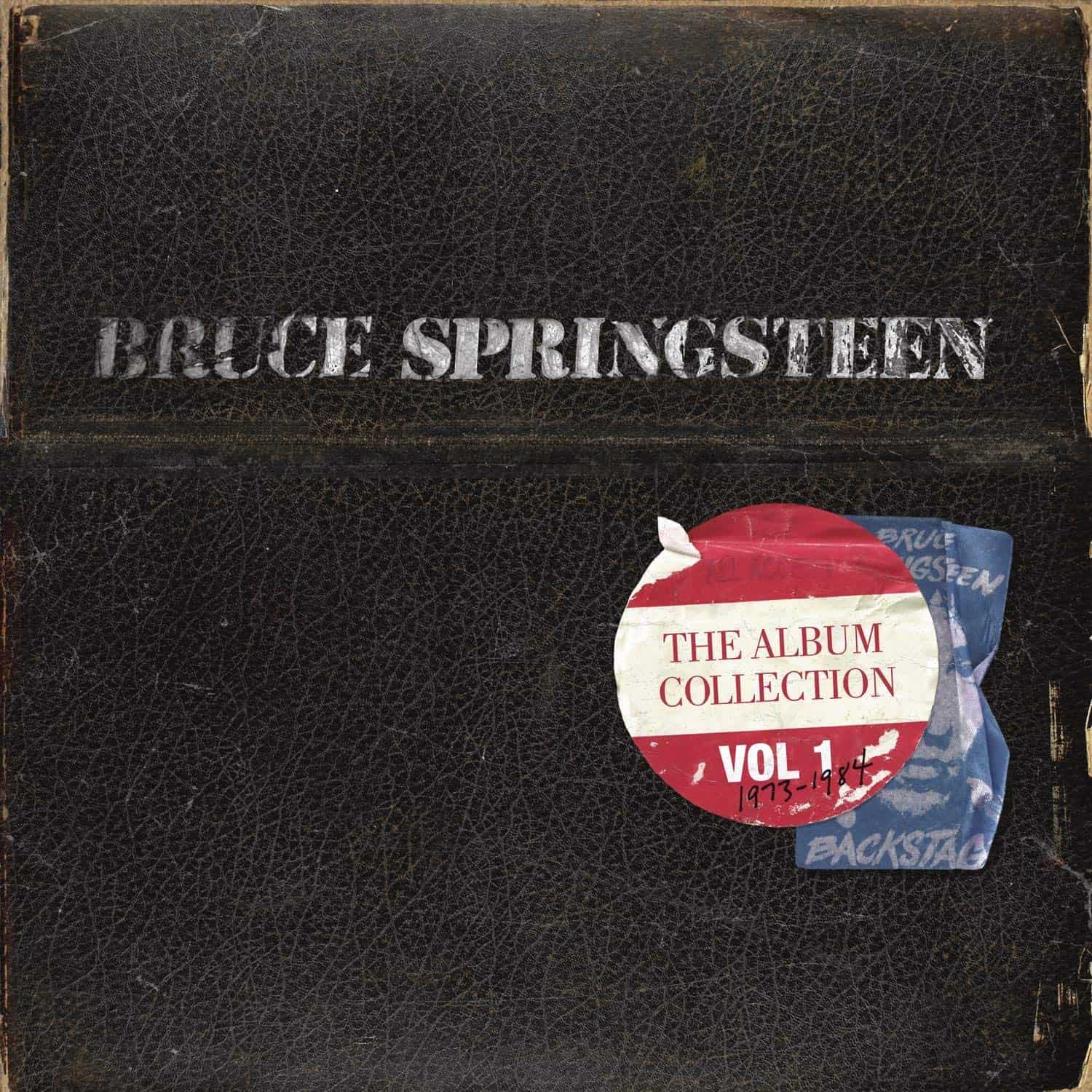Marketplace
2018 Polydor Records PRESSING
- RPM 33 ⅓
- Catalog Number 0602557974867
- Release Year 2018
- Vinyl Mastering Engineer Miles Showell
- Pressing Weight 180g
- # of Disks 20
- Box Set Yes
- Jacket Style Other
- Pressing Plant MPO
When the Rolling Stones’ contract with Decca Records (Liberty Records in the U.S.) ended in the early 1970s, the band started its own label, Rolling Stones Records. Marshall Chess, whose father, Leonard Chess, co-founded Chess Records, initially ran the imprint. Atco distributed it in the U.S. Coincidentally, Chess and Atlantic Records (Atco was a subsidiary) were responsible for much of the early blues and rock n’ roll that inspired the Stones. Rolling Stones Records continues to this day, with distribution changing hands over the years from Atlantic to Columbia Records, then to Virgin Records, and now to Universal Music. Each switch has resulted in batches of newly remastered CDs and, sometimes, vinyl reissues.
And so we now have the band’s post-Decca recordings collected as Studio Albums Vinyl Collection, 1971-2016. The 20LP box contains every studio album the band released after leaving Decca, beginning with 1971’s Sticky Fingers and continuing through 2016’s Blue and Lonesome. Each LP comes housed in a replica of the original album cover. The set itself is contained in a heavyweight cardboard box with high-gloss artwork and a die-cut, lenticular version of the label’s (and band’s) famous tongue logo.
Abbey Road Studios’ Miles Showell of mastered the set from digital files sourced from flat high-res transfers of the original master tapes. He cut them at half-speed, a technique used by Stan Ricker, a hero of his who cut many LPs for Mobile Fidelity Sound Lab. Showell’s mastering on the two-LP reissue of Sgt. Pepper’s Lonely Hearts Club Band and the vinyl reissue of Eric Clapton’s Slowhand prove he possesses a sensitive ear and can take digital sources and make them sound close to analog. He turns in another commendable effort here.
Sticky Fingers, the first release on the Stones’ label, ranks with the band’s finest work. Showell’s cut brings out more of the low frequencies, so that Charlie Watts’ toms on “Brown Sugar” are more prominent and the bass feels cleaner and tighter throughout the record. Nicky Hopkins’ piano on “Sway” sounds more clearly etched, and Paul Buckmaster’s strings there and on “Moonlight Mile” more refined and forward. Guitars on “Wild Horses” and “Moonlight Mile” teem with unveiled harmonic richness, and Jim Price’s piano on the latter track echoes with newfound solidity. The guitars on “I Got the Blues” are fuller, too, with more audible low strings and layered horns. By contrast, “Brown Sugar,” Bitch,” and other gritty tracks seem tamed by the new master. Bobby Keys’ sax solo on “Can’t You Hear Me Knocking” also spits with nastier overtones on the original pressing. On balance, there are many things to like about the new pressing, but I miss the dirtiness of the original.
Exile on Main St. remains regarded my many fans as the Stones’ masterpiece. Showell’s mastering gives it—and, in fact, all the records here—a solid, defined bottom end that extends to both the bass and kick drum. Exile on Main St. proves more spacious on many tracks. On “Tumbling Dice,” for example, we enjoy a slightly better sense of dynamics. The horns on “Rocks Off” register more forcefully, and Mick Jagger’s vocals are often more clearly focused throughout. Acoustic guitars on “Sweet Virginia” sound warm and realistic, and many tunes resonate with a pleasingly balanced sound. However, the original pressing rips—something the remaster fails to do. Sure, “Rocks Off,” “Hip Shake Thing,” “Ventilator Blues,” and most of the other blues-drenched tunes remain forceful and appropriately dark. “Ventilator Blues” just sounds meaner on the original.
Goat’s Head Soup sounds vastly improved by the new master. Bass lines are firmer and the thin sound of the original gets replaced by a fuller, beefier foundation that injects “Dancing with Mr. D” and “Doo Doo Doo Doo Doo (Heartbreaker)” with extra life. Slower songs, such as “Angie” and “Winter,” benefit from enhancements in the form of more roominess that allows for finer instrumental detail. Guitars and piano claim better resolution throughout. Guitar trills and intervals are cleaner and sustain longer, too, and Jagger’s voice sounds more three-dimensional.
Moving on down the line, instruments on It’s Only Rock ‘n Roll gain increased separation on the new pressing, with the guitars brighter and snappier than on the original. Watts’ high hat on “If You Can’t Rock Me” features more splash and rhythmic drive, and Hopkins’ piano on “Ain’t Too Proud to Beg” reaches out in the soundstage so it becomes easier to hear. More audible, punchy bass frequencies on “Fingerprint File” up the funkiness and danceability.
Black and Blue is also airier and more spacious in the new version, but remains more forceful on the original pressing. On harder-rocking tracks, such as “Hand of Fate” and “Hot Stuff,” Watts’ drums have more slam on the original, which also claims superior bass response. The increased space on the new master lends “Memory Motel” extra depth and subtlety, but Wayne Perkins’ guitar solo on “Hand of Fate” retains a nastier edge on the original, where the guitars throughout sound tougher. In short, the original pressing boogies harder on the tracks that demand such behavior.
The Stones’ late-1970s and early/mid-1980s LPs on Studio Albums Vinyl Collection, 1971-2016 present an equally mixed bag. The more defined, deeper bass on the new pressing of Some Girls adds to the R&B soulfulness of “Miss You,” while the more spacious mastering brings out Watts’ drums on the title track. The bass, guitars, and snare drum on Emotional Rescue, on the other hand, are sharper-sounding throughout the original (and more exciting-sounding) LP. Tattoo You boasts a fatter sound on the new pressing, with less-pronounced reverb and a deeper soundstage. Undercover is more open and punchier on the original. The added space on Dirty Work, by comparison, makes it easier to appreciate the subtleties on the record—one of the band’s most underrated.
As a whole, the Stones’ 1989-2016 albums fare uniformly better on the new editions. Steel Wheels sounds harsh and tinny via the original pressing. Here, Showell backs off on the compression to give it a more pleasant and spacious aura. Guitars that originally came at you in a hail of noise now feel more natural. Voodoo Lounge sounds good on the original, but the new pressing affords background vocals extra space behind Jagger. Guitars are also less bright but still deliver plenty of bite. Bridges to Babylon sports a full bottom end, even if the bass attack is not as strong as on the other LPs in the set. And A Bigger Bang is now less forward-sounding, which grants Jagger and the band’s instruments more room.
The quality of MPO’s vinyl pressings should impress any audiophile. While my copy of Goats Head Soup has a slight warp that didn’t affect playback, all of the other LPs are flat and quiet. The set’s first-rate packaging replicates the artwork and inserts of the original LPs in the manner of the U.K. releases. Each LP comes housed in a lined paper sleeve, and if the LPs originally had cardboard inner sleeves with credits and artwork (e.g., Exile on Main St.), those sleeves are included. However, the cover of Some Girls does not feature the celebrity photos depicted on the original release. It is the “censored” version.
Album by album, listeners’ preference for new or old pressings will likely vary. The new masters all sound warm and very close to analog, with no over-compression. They’re also vastly superior to the CDs Universal Music reissued over the last decade. If you already own originals of these LPs, you may be interested in individual reissues. For now, you’ll need to bide your time.
One of the pleasures of Studio Albums Vinyl Collection, 1971-2016 relates to affording fans the ability to return to albums the Stones recorded over the years and reminding them of the band’s remarkable consistency. Records that took me a while to enjoy at first, such as Emotional Rescue and Undercover, are better than I remembered. And the group’s later-era records proved something of a revelation in these masters, which register an enormous improvement over the originals. If your Stones collection has big gaps, you could do much worse than acquiring this beautifully packaged, well-mastered reissue.
Studio Albums Vinyl Collection, 1971-2016



 4
4




